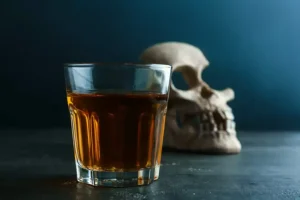
Using prescription drugs long-term can also significantly affect your mental health. Some medications directly affect brain chemistry or neurotransmitter levels, leading to mood, cognition, or behavior changes. Certain drugs can cause side effects such as depression, anxiety, or sleep disturbances. Without a doctor’s prescription and supervision, short and long term use of depressants can lead to dangerous side effects, including accidental overdose. Combining them with alcohol or other drugs increases the health risks and risk factors of death from overdose. The long term effects of prescription drugs can vary widely from person to person depending on length of use, type of drug used, and existing mental or physical health issues.
- For many people trying to recover from a substance use disorder, perhaps for the majority, abstinence may be the most appropriate treatment objective.
- By addressing the root causes of addiction and providing support throughout the recovery journey, we empower individuals to reclaim their lives and achieve lasting sobriety.
- When you misuse drugs, there is a huge possibility that the habit can become addictive.
- This way, we will be able to know if there are other underlying issues that need attention.
Withdrawal Symptoms
Mentally they will need to learn how to live Sober living home without the drug they have become dependent on and quite possibly addicted to. The material is not a substitute for qualified medical diagnoses, treatment, or advice. It should not be used to replace the suggestions of your personal physician or other health care professionals. Treating any addiction requires highly tailored care that considers everything regarding your medical history. This includes when and why you started the prescription medication in the first place.

The Health Consequences of Prescription Drug Abuse
In fact, in recent years, prescription drug abuse has resulted in more deaths than cocaine and heroin combined. Luckily, there are addiction treatment programs, like our Florida or California rehabs, that can help address the consequences of prescription drug abuse and help you stop taking recreational drugs. Teen prescription drug abuse is a bigger problem than many people realize, and the long-term effects of prescription drugs can be devastating. According to the Substance Abuse and Mental Health Services Administration, 74% of all adults enrolled in a substance use treatment program began using drugs or alcohol before age 17. Termed “central nervous depressants,” these medications work by slowing down the brain’s normal activity.

Emotional effects of prescription drugs abuse

You may even start to feel suicidal and contemplate taking your own life – just to escape the feelings of misery and entrapment that addiction brings. Reach out to our experienced staff when you are ready to make a change in your life. AARP is a nonprofit, nonpartisan organization that empowers people to choose how they live as they age. Statins appeared in an earlier version of this article, published in 2016, but more recent research is giving these cholesterol-lowering drugs the boot from the list.
Dangers and Long-Term Effects of Prescription Drugs

The manual defines SUD as a disorder involving the continued use of substances despite personal, professional, and health-related problems caused by the usage that negatively affects a person’s day-to-day life. Substance use disorder can lead to short- and long-term negative health effects. Long-term prescription stimulant abuse can cause a range of different health problems, including chronic fatigue and exhaustion, sexual dysfunction, and cardiovascular damage. These drugs increase blood pressure and can lead to permanent prescription drug abuse changes in cardiovascular functioning.
- Long-term abuse can cause liver damage and also worsen mental health conditions.
- In general, taking these prescription drugs according to your doctor’s instruction and supervision will prevent any addiction or adverse effects.
- Signs of prescription drug abuse in teenagers include mood and personality changes, isolation, a change in academic performance, and changes in their physical appearance.
- However, health implications and drug dependence can occur through the mismanagement of prescribing addictive controlled drugs.
- Over the course of this blog, we will break down the possible long-term effects of prescription drug abuse.
There are steps you can take to help prevent prescription drugs’ abuse effects. In addition to physical and mental effects, substance use can adversely affect a person’s relationships, home and work life, and mental health. This article does not reference the term “drug abuse,” which is a stigmatizing term. Instead, the Diagnostic and Statistical Manual of Mental Disorders, 5th edition (DSM-5) uses the term substance use disorder (SUD).
- You may behave in a way you’re unaccustomed to, become violent, paranoid, or even hostile.
- Prescription drugs are indispensable in modern medicine, offering effective treatment options for various ailments and improving patients’ lives.
- You are not continuing to take prescription drugs because you necessarily want to, you are taking them because you feel you HAVE to.
- Patients’ reluctance to reduce or stop using may be better combated if physicians were able to adequately identify and communicate how substance use was impacting specific health conditions.
Prescription drug addiction can also serve as a gateway to street drugs like heroin. Someone who can no longer get oxycodone, for example, might buy street heroin to avoid withdrawal. The groups are based on their chemistry and the specific mental health condition or problem they help address. Talk to your doctor about switching to a different beta-blocker with a slightly different chemical composition, Lloyd-Jones suggests. By addressing the root causes of addiction and providing support throughout the recovery journey, we empower individuals to reclaim their lives and achieve lasting sobriety. Treatment admissions by age at admission and according to primary substance of abuse.


